Welcome to Autumn, everybody!
The first of August—called Lughnasadh in Gaelic—is the harbinger, the ceremonial and seasonal golden gateway to Fall.
You may already know that Lughnasadh is named for Lugh, an Irish deity of light, harvest and radiance.
What you might not know is that Lugh has a dark brother.
Lughnasadh celebrates the grain and berry harvest, the beginning of the arc of the harvest story which climaxes at Mabon (the Equinox) and reaches its final denouement at Samhain. And Lugh is its spirit, deity of the holiday’s heart.
Lugh is known as ‘many-skilled’: his holiday is traditionally celebrated with feats of strength and stamina (the ‘games of Lugh,’ for which this high day is named) to prepare the men for the labors of harvest. Lugh encourages us to use our gifts, our talents, and our capabilities. His name, Lugh, is cognate with Llew in Welsh, so Lugh is often identified with Llew Llaw Gyffes, ‘The Bright One with the Strong Hand’, one of the heroes in the Welsh epic Mabinogion.
But Lugh/Llew is not an only child. In the Mabinogion, Llew has a twin brother: Dylan, born at the same time of the star-wheel goddess Arianrhod. To test Arianrhod’s virginity for a position at court, king Math induces labor in her and she gives birth to two sons. They drop out of her body, and she, humiliated, flees. One of these is a little blob whom her brother magician Gwydion will rear up to become the golden warrior Llew. The other, as soon as he is baptized, plunges into the sea:
They held the baby carefully so that he should but touch the sea, but as soon as he came against it he seemed to recognize it as his own familiar and proper world. He turned over and squirmed out of their hands and swam off….
‘You should have seen that brat swimming off like a little fish, brother,’ said Govannon to Gwydion. ‘I thought my own eyes were liars.’ ~ Evangeline Walton, The Island of the Mighty, The Manibogion Tetralogy
‘Dylan’ in Welsh means ‘the flood that recedes, the wave that floods, the tide that returns.’ It evokes the clamor of the waves dashing upon the beach, the sound of the sea rushing up the mouth of tidal rivers in a tidal bore.
Darkness and Light
In the mysterious, archetypical realm, the two brothers represent two elements of Planet Ocean/Planet Earth: the vast and wild, dark depths of the sea, that are Dylan, and the terrestrial, sunlit world that is Llew.
So on Lughnasadh, the feast of Lugh, we should meditate too on Llew’s dark, mythical brother, because without his twin, Llew is an incomplete mythology. The complete story has something new to teach.
If Lugh is a god over harvest, then his brother might have something to do with harvest as well. Lughnasadh is a harvest holiday, Lugh an image of the sacrificial grain god, who is buried, planted, or burnt, an offering of matter and fertility back to the land, of gratitude for what we take from it, and to ensure its generativity for the next growth cycle.
But we offer nothing back to Dylan, to the sea. For as much as we take, we only ever take. And this is what has thrown us out of true.
No terrestrial farmer would work the same field over and over, without fertilizing it or allowing it to lie fallow, until all the nutrients of the field were depleted and it became desert.
But although we reap from the ocean, endlessly, can you think of anything we ever put back into the sea to help it, besides the occasional artificial reef, other than garbage? Seemingly infinite trash, as though the ocean were the sewer of the world.
When you stop to think about it, it makes no sense at all.
We scoop vast shoals of fish—whole populations of them—without restocking them.
Our billion-fold addiction to eating sea life has created lobbies to trawl the sea ever deeper, threatening even to open protected areas containing fish nurseries, which should be sanctuaries for new generations of wildlife to regenerate, replace, and sustain themselves. In no other facet of life that I can think of do we fail to circulate energy like this. It defies every principle of economy or physics.
There is nothing right now in the relationship of humans to the ocean that in the least resembles the basic symbiosis of a farmer with his land.
The documentary Leviathan shows a trawl net come up after it has scraped the ocean floor (48:00-51:00; 56:00-57:00), clanking like heavy chain mail, dripping with sea water and laden with struggling creatures. The trawl net cannot discriminate, but takes everything in its path, target species or not. It might as well have painted on it, I am Deathbringer, for it is death to invertebrate communities, death to the benthosphere, a wound to ecosystems that may take decades to heal, or may heal never.
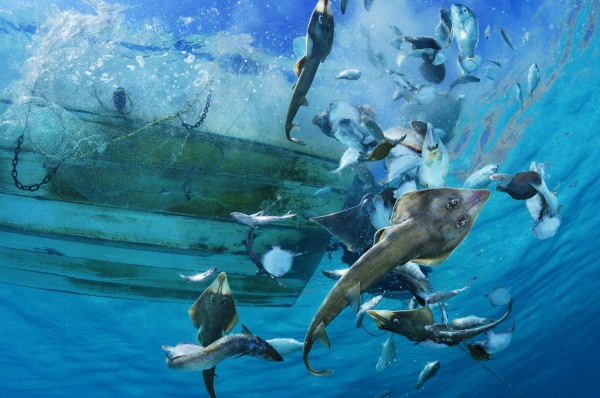
This image is a photograph by Brian Skerry of fish being tossed overboard, dead, because they were ‘bycatch’ of a shrimping boat: non-target animals who just moments before had been alive in the ocean, but lost their lives because they were in the wrong place at the wrong time. They are not even eaten. They are thrown away as waste, collateral damage to catch a handful of shrimp.
We need to bring our life with the sea back into balance.
The Correction
In Kabbalah, there is a term, Bread of Shame, ne’emah d’chesufah in Aramaic. At the grain harvest, it’s appropriate to consider two kinds of bread: bread that we earn, that we cycle energy for, which is the bread of the land, and the bread which we extract endlessly without reciprocity or requital, and that is the bread of the ocean. That is Dylan’s bread, Dylan’s harvest: the sea harvest.
We have made the ocean into our Giving Tree, from which we take and take, like the boy in the Shel Silverstein parable who never realizes his connection to the sustaining universe around him.
But Lughnasadh marks maturity. It is the adulthood of the year, a time of stepping up to responsibility. We can do that, now!
We Are the Many-Skilled
Please do not despair! We can do so much to put things right. One of the great attributes of the Games of Lugh, is that the games themselves are tests of stamina, resourcefulness, and courage. And those were historically and mythically to train us in service of the collective, total good: to feed the community in a way that would sustain it for generations.
All our resourcefulness as people is called upon now to do what we can to help the Ocean. We are given this occasion to redeem ourselves, and to rise.
Since the 1950s, we have extracted 90 per cent of many popular types of fish from the sea. To allow the ocean to recover, renowned ocean advocate and National Geographic Explorer-in-Residence Sylvia Earle advocates stopping eating sea life altogether. “Give fish a break,” she says.
I would venture this also. Please give the sea a break. There is no sustainable seafood/sea life, not anymore. The price is too high and the waste of life too reckless.
If you still eat fish, please eat freshwater fish who are caught locally, or raised in a sustainable way. Locavorism cuts down on the carbon footprint of transporting ocean fish over long distances and can contribute to cleaner waterways.
f you don’t know where your fish come from—or you do know and it’s not okay—then don’t eat them.
We all are consumers/users, in relationship with the ocean. Our consumerism can be active, shaping, creative. Are you in charge of anything? Then you can make executive decisions about your company, about the way your family lives, to help the ocean. You can support Fabien Cousteau’s Plant a Fish, which strives to restock the ocean with species whose presence has been depleted. You can help establish, expand, and defend marine sanctuaries.
Have a brain jam session by yourself or with friends to generate more ideas of what you can do.
Lughnasadh encourages us to use our gifts actively. Everything we have was given to us with the potential of saving others. If you are a writer, write for the ocean. If you are a teacher, teach for the ocean. If you are an artist, make art for the ocean, to educate people about it. Follow at least one ocean organization closely through social media, and learn every day.
Care for your local waterway, as all rivers flow to the ocean. We don’t get to claim ignorance any more. We know too much and when we know something, we become responsible for it.
We can make our work an offering to the planet we live upon, Earth that is both land and ocean.
There is grace that is given to us, and then there are things that we earn. Our earning things is a sign of our maturity, our action, and our deserving. It is the way we evolve our own divine nature, to be like Lugh and that so truly, by showing the attributes of the divine in ourselves: generosity, mercy, creativity, and protection. We have the opportunity now to be the Ocean’s grace, as we have at no other time ever on the planet, to rise to that level of which we are capable.
Lugh Samildánach means Lugh, the many-skilled. Each of us has our own skill, and among us, as a collective, we have many.
Feel animated! We of the land can save our sea brother. This old rift needs to be put right. We can heal our planet, and ourselves, as we are water also, if we use the powers that are given to us.
The land has a brother, and it is the sea. Llew has a brother, and he is Dylan.
Mythology evolved to explain how the world works. There are deeper truths than we know and many still to be revealed. The answers to our questions are tucked and coded in the stories, if we look for them. Myths reveal truth layer by layer.
Sometimes we have to reach a certain level of maturity before we can hear the next level.
May the magical principles, the radiant attributes we celebrate at Lughnasadh, help us to be shining stewards of this planet, and to restore balance, everywhere we are!
Blessed be, joyous Lughnasadh, and Love!
Laura
https://www.youtube.com/watch?v=SpXaldfaPwg&index=185
Love elephant and want to go steady?
Sign up for our (curated) daily and weekly newsletters!
Editor: Renée Picard
Images: Top image is author’s own; Stillshot from The Secret of Roan Inish, by John Sayles (Jones Entertainment Group, Skerry Productions, 1994); Ocean photography by Brian Skerry: you can view the rest of his ‘Global Fisheries’ portfolio here and follow his ongoing work on Instagram and in National Geographic.


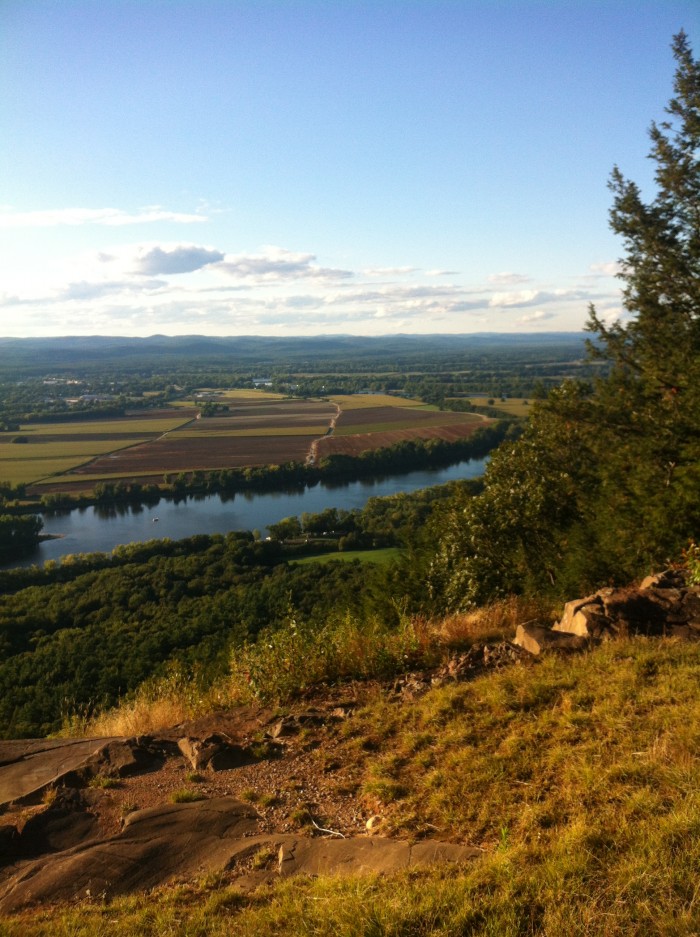
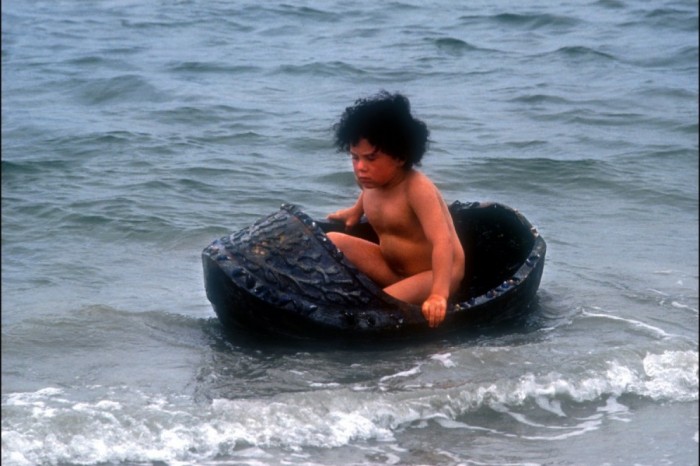
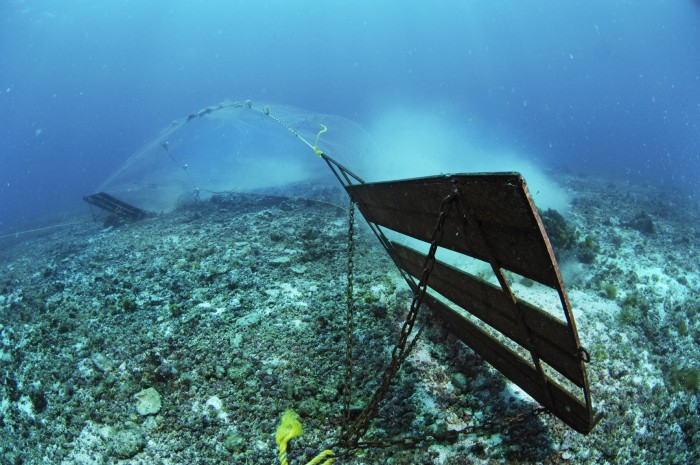
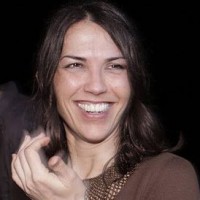







Read 0 comments and reply